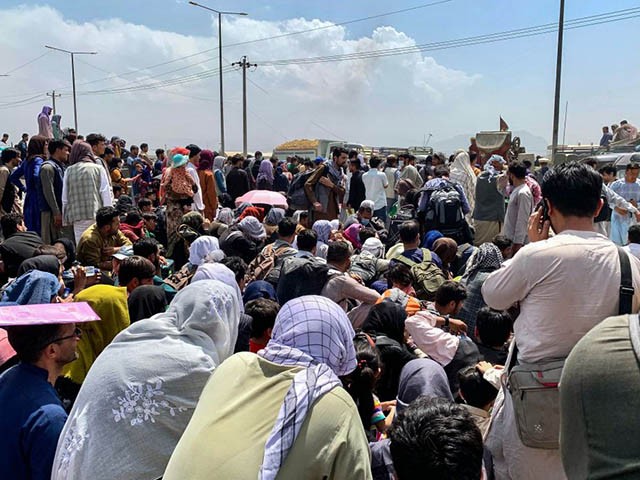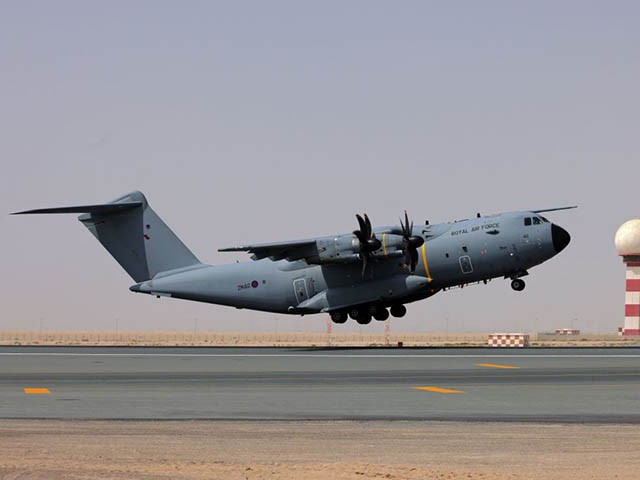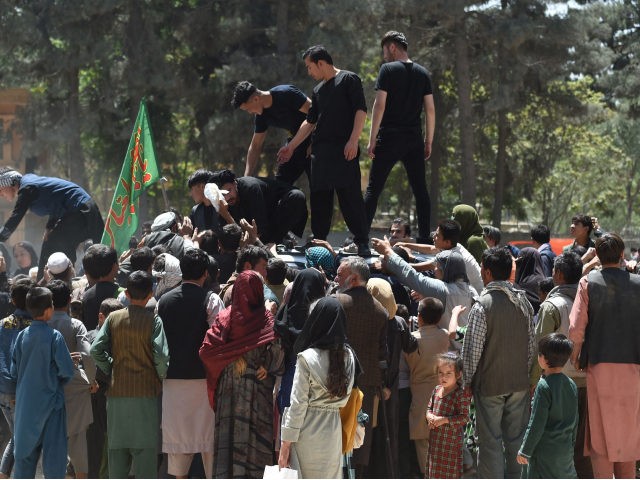Financial and medical aid to Afghanistan “must not be interrupted” despite the Taliban terror group’s takeover of the country this week, the World Health Organization (W.H.O.) argued Wednesday.
“Sustained access to humanitarian assistance, including essential health services and medical supplies, is a critical lifeline for millions of Afghans, and must not be interrupted,” the W.H.O. wrote in a press release on August 18.
The United Nations (U.N.) health body said it was “committed to staying in Afghanistan” moving forward, even as the war-torn nation faces rule by Islamic law, or sharia, under the jihadist Taliban after the terror group ousted Kabul’s U.S.-backed, and democratically elected, government from power on August 15.
U.N. Aid Coordinator for Afghanistan Ramiz Alakbarov asked the international community to continue providing financial support for the W.H.O.’s various health projects in Afghanistan in remarks to the press on August 17.
He vowed to “work with the de facto authorities, with those who control provinces, with people in power, in order to provide impartial humanitarian assistance to those who need that humanitarian assistance.”

Afghan people gather along a road as they wait to board a U S military aircraft to leave the country, at a military airport in Kabul on August 20, 2021 days after Taliban’s military takeover of Afghanistan. (Photo by Wakil KOHSAR / AFP) (Photo by WAKIL KOHSAR/AFP via Getty Images)

A Royal Air Force Airbus A400M Atlas military transport aircraft, carrying evacuees from Afghanistan, departs from Al-Maktoum International Airport in the United Arab Emirates on August 19, 2021. – Britain’s operation to evacuate its nationals and protected individuals stepped up on August 19, with planes landing in Dubai before passengers travel on to the UK. At south Dubai’s Al-Maktoum airport, a Royal Air Force transport plane carrying evacuees from Afghanistan took off around 1040 GMT with another batch of UK-bound passengers due in from Kabul shortly afterwards, an AFP correspondent saw. (Photo by Giuseppe CACACE / AFP) (Photo by GIUSEPPE CACACE/AFP via Getty Images)
Alakbarov’s comments suggest the U.N. plans to comply with the Taliban’s rule, as the group assumed the role of Afghanistan’s “de facto authority” on Sunday when it seized the country’s seat of government in Kabul.
“U.N. dealings with the Taliban, designated by its Security Council as a terrorist organisation, may raise questions among donors,” Reuters noted on August 17. The news agency made the observation while reporting on the United Nations Children’s Fund (UNICEF)’s expression of “optimism” at the prospect of collaborating with Taliban leaders in Afghanistan.
“We have ongoing discussions, we are quite optimistic based on those discussions,” UNICEF’s chief of field operations in Afghanistan, Mustapha Ben Messaoud, told a U.N. press briefing on August 17. He referred to UNICEF’s “initial meetings with new Taliban representatives in recently seized cities like Kandahar, Herat, and Jalalabad,” according to Reuters.
“We have not a single issue with the Taliban in those field offices,” Messaoud added, referring to 11 operational field offices across Kandahar, Herat, and Jalalabad.
UNICEF’s statement contrasted with that of the W.H.O. just one day later, which painted a dire picture of Afghanistan’s beleaguered medical system in its Wednesday press release. The U.N. body admitted that at least 12 of its healthcare workers were “killed” in fighting across the country during recent clashes between the Taliban and Afghan government forces as the Taliban waged a successful campaign of jihad to reconquer the country.
“[A]ttacks on health care remain a major challenge. From January to July 2021, 26 health facilities and 31 health care workers were affected; 12 health workers were killed,” the W.H.O. statement revealed.
The organization said Taliban attacks had further impacted its operations in Afghanistan this week, temporarily suspending its ability to provide health services to civilians from August 16-18.
“W.H.O. and partners have conducted an initial assessment of the health needs of displaced populations and have deployed two mobile health teams to provide medical services,” the August 18 press release read.
“However, interventions have been on hold for the past 36 hours due to insecurity,” W.H.O. revealed.
Trauma injuries have spiked across Afghanistan in recent weeks amid the Taliban’s military offensive.
“In July 2021, some 13,897 conflict-related trauma cases were received at 70 W.H.O.-supported health facilities, compared to 4,057 cases in July 2020,” the U.N. health body said Wednesday.

COMMENTS
Please let us know if you're having issues with commenting.